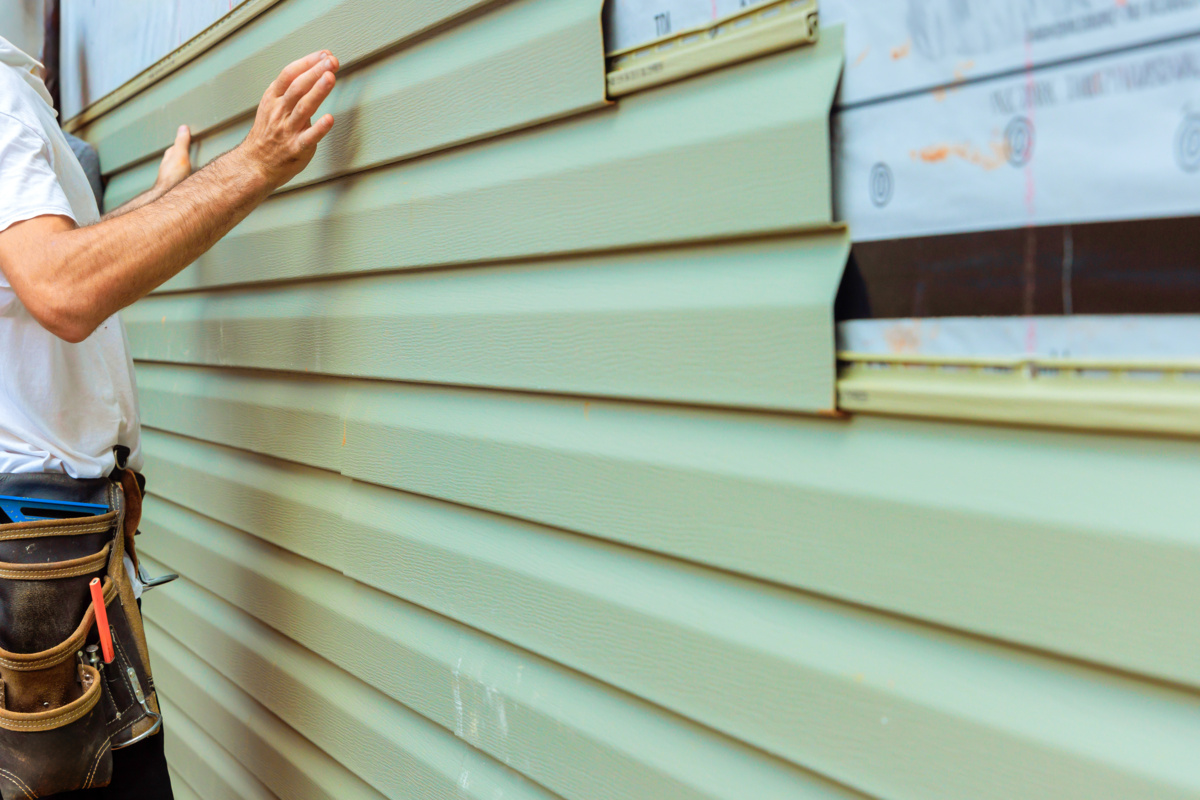The contractor you choose can make or break your home improvement project. Stories of unfinished work, unexpected costs, and poor communication are all too common, and they serve as a reminder of how important it is to choose carefully. Whether you’re replacing siding, installing windows, or tackling a larger renovation, finding the right contractor is key. This guide will help you navigate the process, avoid common pitfalls, and make a confident choice for your home.
Why It’s Important to Choose the Right Contractor
Home improvement projects are substantial investments, both financially and emotionally. The results often shape your daily environment, impacting your home’s appearance, functionality, and value. Because of this, it’s worth putting in the effort to choose a contractor you can trust. The right professional will respect your decision-making process and offer expert insights that help you make the best choice for your home.
1. Get Multiple Bids for Comparison
A helpful rule of thumb when choosing the right contractor is to get at least three or four bids before making your decision. Each contractor has a unique way of approaching a project, and by gathering several quotes, you’ll get a better sense of what’s available and at what price point. Not only will this give you an idea of the going rates, but it will also highlight any pricing discrepancies that could indicate potential red flags.
When reviewing bids, don’t just look at the cost; consider what’s included in each estimate. Does the quote cover all necessary permits, materials, and labor? Are there any additional fees or potential costs left out? Taking time to review these details will give you a well-rounded picture of what to expect from each contractor.
Tip: Beware of High-Pressure Sales Tactics
It’s natural for contractors to highlight their services, but if you encounter high-pressure sales tactics, it’s a red flag. Any contractor aggressively pushing you to sign a contract on the spot or offering substantial discounts for signing immediately should raise concerns. This urgency can make you feel rushed and doesn’t allow you the time to discuss with your spouse or significant other, which is crucial for such an investment.
2. Watch for Red Flags in Contracting Practices
Not every contractor is transparent about their services, and some red flags could indicate an unreliable or even dishonest business. When choosing the right contractor, keep an eye out for these warning signs:
- Limited-Time Offers to Sign: A contractor who pressures you to sign the contract immediately, claiming a “limited-time discount,” may not have your best interests at heart. This tactic is often used to prevent you from comparing prices or thinking through the decision thoroughly.
- Long, Hard-Sell Presentations: Quality contractors respect your time and understand that education, not a high-pressure pitch, is what matters. If a contractor gives a lengthy presentation without answering questions or addressing your concerns, consider other options.
- Unclear Guarantees: Reliable contractors offer warranties or guarantees that cover their work. Be cautious of contractors who are vague about what is covered or avoid discussing this aspect altogether.
Tip: The Right Contractor Educates, Not Sells
Good contractors approach a project with an educational mindset. They take the time to discuss your specific needs, explain different options, and help you understand what will work best for your home. Instead of pushing for a sale, they focus on informing you, empowering you to make a decision without feeling pressured.
3. Look for Transparent Pricing and Strong Guarantees
Choosing the right contractor also means understanding exactly what you’re paying for. A trustworthy contractor will offer an honest, straightforward price and stand behind their work. They won’t lure you in with vague promises or inflated discounts that mask the true cost of the job.
When reviewing a bid, ensure the pricing is clear and itemized. A reputable contractor will be transparent about costs, breaking down expenses for materials, labor, and additional fees. They’ll also provide a warranty on their work, guaranteeing it’s done to the highest standards. This gives you peace of mind and shows the contractor’s commitment to quality and customer satisfaction.
4. Prioritize Contractors with a Proven Track Record
Another factor when choosing the right contractor is experience and reputation. Ask for references, look up reviews, and check if they have a portfolio of completed projects similar to yours. Contractors with a proven track record of quality work and satisfied clients are often your best bet for reliable service.
Questions to Ask References
- Was the project completed on time and within budget?
- Did the contractor communicate clearly and answer questions throughout the process?
- Were there any issues after completion, and if so, how were they handled?
Hearing directly from past clients can give you valuable insight into how the contractor operates and handles potential challenges.
In Summary
Choosing the right contractor is essential to ensuring your home improvement project runs smoothly and delivers the results you envision. Start by getting multiple bids, looking for transparency in pricing, and watching out for aggressive sales tactics. Remember, a reputable contractor won’t pressure you to make hasty decisions but will instead guide you through the process with education and honesty. As you explore your options, keep in mind that a contractor with clear guarantees, a proven track record, and an emphasis on client education is often the best choice.
If you’re ready to discuss your project with a contractor who values trust and quality, contact us today. We’re here to help you make informed decisions for your home improvement journey.



